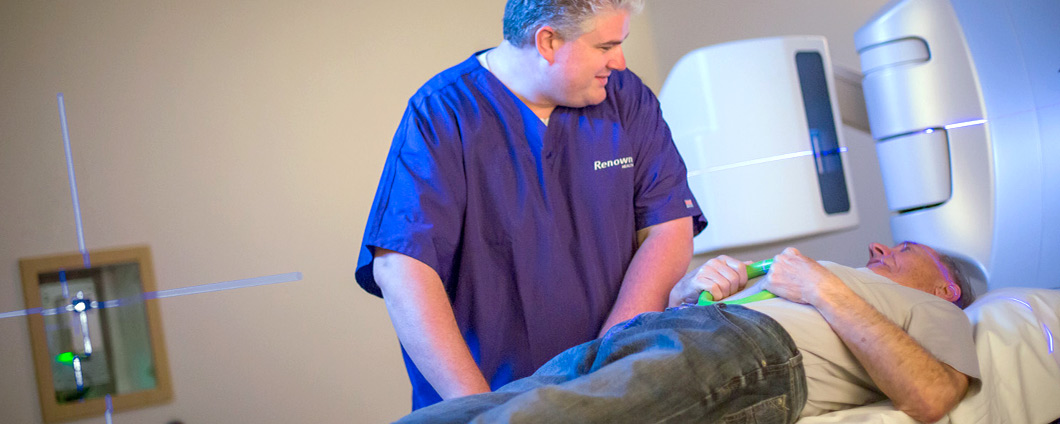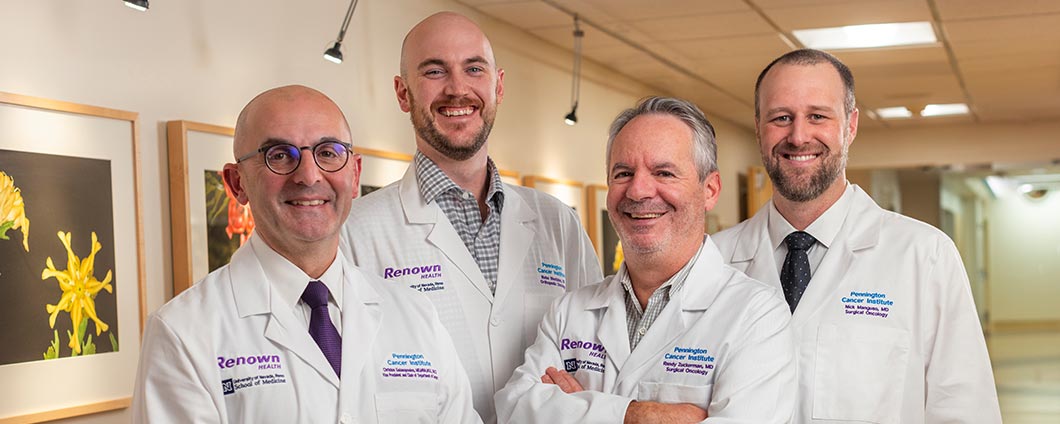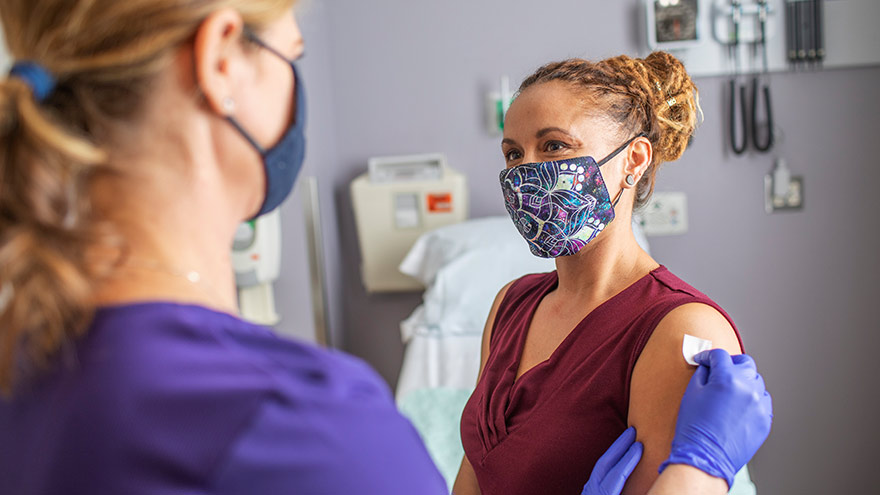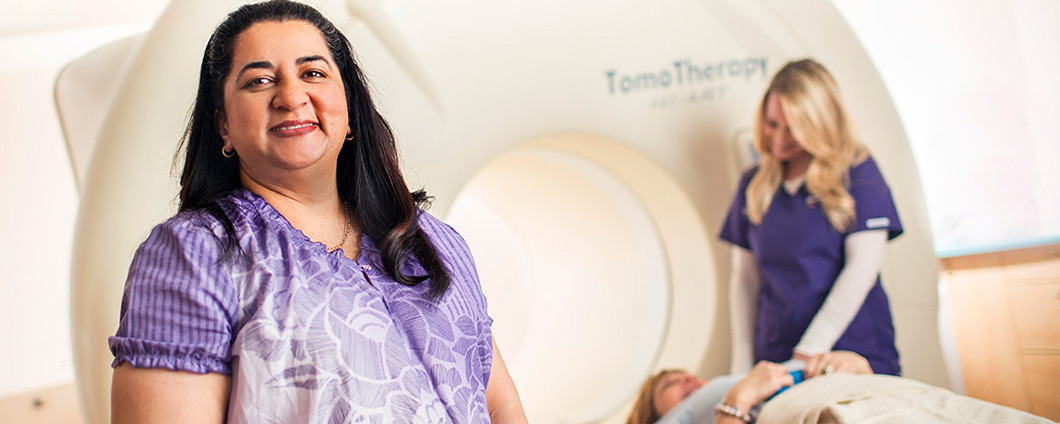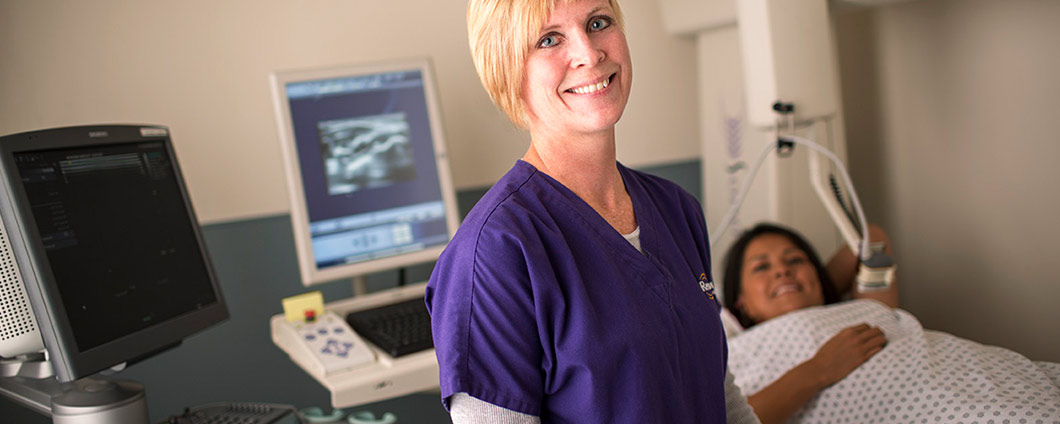Search
Results for 'doctors'
Clear-
3 Healthcare Musts for Millennials
Many millennials are fortunate to have good health, but it’s important to be prepared for your next doctor’s visit. Here are three things that millennials should stay on top of for tracking and maintaining their health. For many millennials, doctor visits and preventive healthcare fall by the wayside. Alison Lynch, MD, a family medicine provider with Renown Medical Group says there are a few key things you can do now to set yourself up for a healthy future. 1. Establish with a Primary Care Provider Millennials are more likely to go to urgent care or consult the internet when a healthcare issue arises. While these are helpful tools, here’s a better one: a primary care provider. The benefit of establishing with a primary care provider is that your medical records, history and a baseline for your health will be documented. That means that when a problem or question comes up, your doctor will already have helpful information on file and can help you navigate your needs. Having a primary care provider is often required for prescription refills and referrals to a specialist. By establishing now, you’ll be able to get what you need in the future much faster. Make an Appointment Today 2. Protect Yourself and Your Community There are a few vaccinations and screenings that Dr. Lynch recommends for millennials. Flu Shots: These are available every year and are recommended for protecting not only yourself against the flu but also others you may come into contact with. Flu shots are usually available from August through December through your healthcare provider, pharmacies and pop-up events. Tetanus or Tdap: Most people receive a tetanus shot as a child, but it’s recommended that everyone get a booster every 10 years. If you are overdue, talk to your primary care provider or pharmacist about getting updated. Pap smear: If you’re a woman, a pap smear is recommended every three years in your 20s and every five years in your 30s. HPV vaccine: This vaccine helps prevent the virus that causes cervical cancer as well as the majority of head and neck cancers and warts. The HPV vaccine is recommended for all genders up until age 45. STD screening: Consider an STI/STD screening if you’re sexually active.
-
Prostate Cancer
Prostate Cancer Screening & Prevention For more info, give us a call. 775-982-4000 In the United States, one in six men will be diagnosed with prostate cancer. While the exact causes of prostate cancer are still unknown, certain risk factors are linked to the disease, increasing a person's chance of developing prostate cancer. Risk Factors Age: Men over 50 are at more risk. Race: For unknown reasons, prostate cancer is more common in African American Men. Family history: Men with a first-degree relative (father/brother) are more likely to be diagnosed. Prevalence in the family: Men with one first-degree relative should talk to their doctor about prostate cancer screening by age 45; men with multiple family members diagnosed should speak with their doctor by age 40. Diet: A diet high in red meat, dairy products, and saturated fat may increase the risk for prostate cancer. If you are concerned about prostate cancer because you meet one or more risk factors, talk to your doctor about a screening. Screening Prostate-Specific Antigen (PSA) Test The prostate gland naturally produces a protein called prostate-specific antigen (PSA). However, higher-than-normal levels of PSA can be an indication of a problem with the prostate gland. These problems could range from prostatitis (inflammation of the prostate) to prostate cancer. To test for PSA levels, doctors administer a blood test. The results are measured in nanograms of PSA per milliliter of blood. The higher the patient's PSA per ng/mL, the more likely he is to have prostate cancer. Talk to your doctor about when you should begin PSA screenings. Digital Rectal Exam Men with a high PSA reading accompanied by other symptoms of prostate cancer may also have a Digital Rectal Exam (DRE). During this exam, the doctor will insert a gloved, lubricated finger (digit) into the rectum to check for enlargement of or growths on the prostate.
-
Cancer Care Team
Your Cancer Care Team Close to Home The William N. Pennington Cancer Institute team wants you to feel confident in the care we provide. Our dedicated doctors, nurses, therapists, dietitians, social workers, and other support staff work together to assure you receive the best care close to home. We serve our communities with the primary location in Reno, a satellite office at Carson Valley Health, and through Telehealth at Banner Churchill Community Hospital in Fallon, Nevada.
-
Neurology
The specialists at Renown Neurology, operated by Renown Regional Medical Center, care for the most complex brain and nerve cases. We use the latest treatment methods to reduce and eliminate the devastating impact of neurological disorders. We also offer access to promising new therapies through clinical trials, and our partnership with the University of Nevada School of Medicine helps keep local doctors in our area. Contact Us Phone: 775-982-2970 Fax: 775-982-2973
-
Cold and Flu 101: What You Need to Know
As the weather cools and the days grow shorter, many people find themselves battling seasonal illnesses. Two of the most common culprits are the flu and the common cold. We asked Marie McCormack, MD, Primary Care Division Chief at Renown, about flu prevention and how to know the difference between the flu virus and the common cold. How do you prevent the seasonal flu? The annual flu vaccine is truly the best form of protection to help prevent the spread of the flu. Even if you do get the flu after being vaccinated, your symptoms will be lessened. Flu vaccines are available to the community. You can schedule a flu shot with your Primary Care provider through MyChart or through the Renown Pharmacy. Visit renown.org/flu for more information. Who should get the flu shot? Almost everyone. The Centers for Disease Control and Prevention recommends a yearly flu vaccine for everyone 6 months of age and older as the first and most important step in protecting against influenza. Different flu shots are approved for people of different ages, but there are flu shots that are approved for use in people as young as 6 months of age and up. Flu shots are approved for use in pregnant women and people with chronic health conditions.
-
Nurturing Your Child's Back-to-School Mental Health
The back-to-school season is here, and ensuring your child's successful transition involves more than just school supplies and schedules. At Renown Children’s Hospital, and in collaboration with Nevada Pediatric Psychiatry Solutions, we understand the vital role that mental health plays in a child's overall well-being and academic performance. Below we'll guide you through essential tips for a smooth back-to-school experience, with a special focus on nurturing your child's mental health. How to Support Your Child’s Mental Health from Home Remember, the below strategies can be adapted to align with your child's personality, learning style and household dynamics. Flexibility and understanding are key in tailoring these tips to suit your child's unique needs. 1. Be Open to Communication: Recognize that effective communication is the cornerstone of understanding your child's feelings and concerns. Create a safe space where your child feels comfortable expressing their thoughts. Listen to learn, without judgment. Make it a point to validate their emotions and ensure they are heard. Encourage sharing experiences,worries, friends and challenges they may be facing. Having open conversations about sensitive topics opens the door for discussion and understanding. Make yourself available. 2. Establish a Routine: A consistent routine can offer a sense of stability and predictability for your child, and anticipation helps to decrease anxiety and establish a sense of control. Join forces and design a daily schedule that includes time for schoolwork, play, physical activity, meals and relaxation. Be flexible about the structure to allow room for last-minute changes including extra activities based on that day’s needs as well. Always add time for play and bonding. 3. Practice Compassion: Back-to-school can come with big emotions. Listening reflexively and acknowledging these feelings can help you and your child act positively on these big emotions. 4. Get Involved: Actively engage in your child's school life by participating in school events, meetings and discussions. Show interest in their educational journey, ask about their experiences and provide guidance when needed. Being present in their academic pursuits not only boosts their confidence but also strengthens the parent-child bond. 5. Use Positive Reinforcement: Celebrate your child's achievements, no matter how small they may seem. This allows for a sense of accomplishment and boosts self-esteem. Praise efforts, progress and perseverance, whether it's completing an assignment, making a new friend or overcoming a challenge. This positivity encourages a growth mindset and resilience. 6. Organize a Schoolwork Zone: Create a comfortable workspace at home dedicated to school-related tasks. Customize the area based on your child's preferences and needs. Having a designated space for studying and completing assignments promotes focus, reduces distractions and enhances their overall learning experience.
Read More About Nurturing Your Child's Back-to-School Mental Health
-
Slow the Spread of the Flu with Herd Immunity
As the leaves turn golden and the air gets crisper, it's not just pumpkin spice lattes that should be on your mind – it's also time to think about your health. Fall time also means it’s flu season and with new cases on the rise, we at Renown Health encourage you to do your part in keeping your Fall activities community safe. How can you protect your whole community you ask? Through something called Herd Immunity. We spoke with Renown Health infection prevention expert, Susanne James to talk about how getting your flu shot is vital for staying healthy and protecting your families and community.
Read More About Slow the Spread of the Flu with Herd Immunity
-
Colorectal Cancer
Colorectal Cancer Screening & Prevention For more info, give us a call. 775-982-4000 Colorectal cancer is the second-deadliest cancer in the United States, partly because it often goes undiagnosed. Polyps can develop in the colon or rectum and become malignant without presenting any symptoms. Therefore, knowing and addressing your risk factors and undergoing the recommended screenings is crucial. Colorectal cancer affects both men and women. Even if you have no personal or family history of colon cancer, ask your doctor about colorectal risk factors and when to start screening. With regular screening, colorectal cancer is easily detectable and treatable.
-
Gynecologic Cancer Screening & Prevention
Gynecologic Cancer Screening and Prevention For more info, give us a call. 775-982-5640 Gynecologic cancer screenings detect disease early, leading to more effective treatment and positive outcomes. If you meet several risk factors, if your Pap test results are abnormal or you are experiencing signs and symptoms of gynecologic cancer, your doctor will conduct further tests to confirm a diagnosis. Gynecologic Cancer Diagnosis Diagnosis includes a pelvic examination to check the vagina, rectum and lower abdomen for masses or growths. A Pap test may be done as part of the pelvic examination.
-
Cancer Nurse Navigators
Cancer Nurse Navigators are dedicated professionals who guide and support patients through their cancer journey. Whether it's helping to connect patients with community resources or offering emotional support, our navigators are committed to ensuring that patients feel informed, educated and empowered throughout their cancer treatment. Personalized Care Every Step of the Way General inquiries and questions Communicate with your primary care doctors and specialists Understand the cancer diagnosis and medical terms Manage financial issues related to care Learn about clinical trial information Find community resources, support groups and complementary therapies No fee or referral is needed
-
Neurodiagnostics
The Neurodiagnostics team at Renown Health offers a wide range of comprehensive imaging, electrical impulse detection, and other neurodiagnostic procedures to help doctors quickly and accurately diagnose neurological conditions, allowing them to create an effective treatment plan. Using neurodiagnostics, our neurologists can diagnose a variety of dysfunctions in the nervous system, such as: Autonomic disorders Brain tumors Epilepsy Head trauma Movement disorders, such as Parkinson’s disease Multiple sclerosis Neuromuscular diseases Peripheral nerve injuries Sleep and breathing disorders Spinal cord injuries Stroke Vascular disease
-
Neurosurgery
Renown Neurosurgery Using a collaborative approach, our experts use leading-edge diagnostic tools to identify neurological conditions and treat them with the most effective surgical and non-surgical treatment techniques available. What is a Neurosurgeon? A neurosurgeon is a doctor that specializes in surgical treatment and management of conditions for the nervous system, including the brain, spinal cord and nerves. In addition to the nervous system, neurosurgeons can also treat conditions that impact the surrounding supporting structures, including your skull, spinal vertebrae, spinal disks, and blood vessels. If your care team determines surgery is the best plan of treatment, you will be referred to a neurosurgeon for consult. Conditions We Treat

